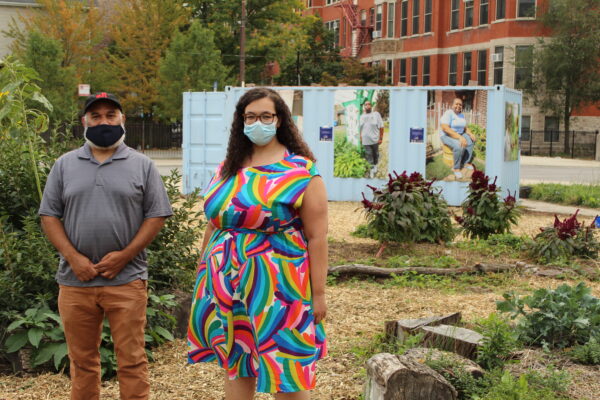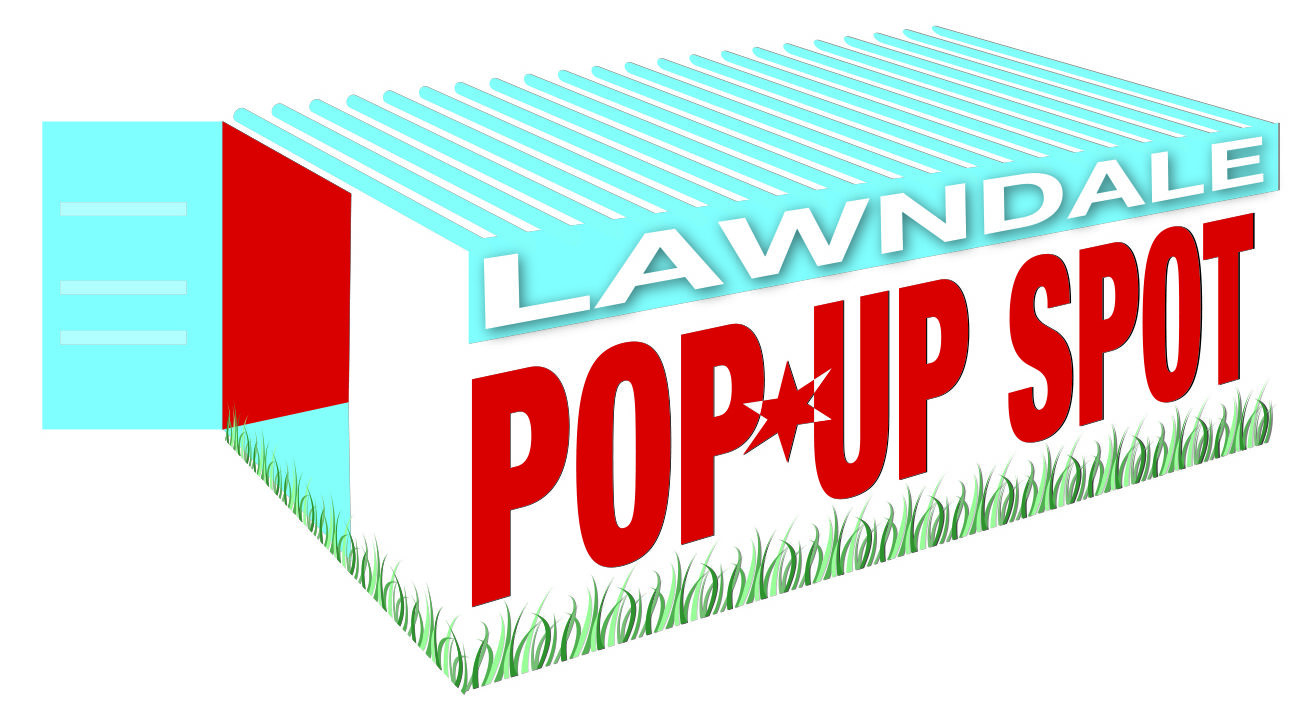Three Questions: Q&A with Jonathan Kelley, co-founder, Lawndale Pop-Up Spot

The Project…
“1 Lawndale”
Location: Chicago, Illinois
“1 Lawndale” is a multi-site exhibit featuring research, art, and programs with the goal of connecting the neighborhoods of North Lawndale and Little Village.
The Organization…
 Lawndale Pop-Up Spot
Lawndale Pop-Up Spot
Founded in 2016, the Lawndale Pop-Up Spot is an innovative initiative that connects history, culture, and nature and highlights the great efforts taking place in North Lawndale.
Follow @LawndalePopUpSpot: Website | Facebook | Instagram | Twitter
The Q&A…
Q1: How do you see the arts/culture/humanities as being essential?
Jonathan Kelley: From my perspective, the most interesting part of life is learning and creating. I got interested in museums because they provided a creative and experiential form of learning, and include sharing, history, art, ideas, and perspectives. I think it is nearly impossible to imagine life without these things, which is sort of the definition of essential. I’d also say that with regard to the humanities in particular – the more we are able to understand ourselves as a species the better we’re going to be able to have the empathy and the connectivity and trust that we need to thrive and survive. I think that those elements of mutual understanding and respect for differences and that which makes us unique go missing, that’s when we find it easier to harm or exploit or rule over or demean other humans.
Q2: What is the most important thing people should know about your work?
Jonathan Kelley: The most important thing is that our goal is to be deeply collaborative, and rooted in the spirit of collaboration, so that while our main thing is to have exhibits – all of our exhibits are collaborations with multiple stakeholders. But then, additionally, Chelsea and the other folks and I in the Pop-Up Spot are committed to being in community. And in the context of North Lawndale, this is primarily through the North Lawndale Community Coordinating Council, which is the body created to design and implement a quality of life plan, which was released in 2018 and is now being implemented. And even before we came up with the idea of a shipping container museum, even before we knew where we wanted to direct our energies, we had a project to do an exhibit space in North Lawndale. Neither of us were residents or had deep connections, so we started to participate in the quality of life planning process. So we opened the doors in August of 2019, and spent almost three years getting to know people, organizations, joining committees in the NLCCC – being engaged. So the hope then is that what we do here is to help the process that a lot of stakeholders have been involved in for a long time, and organically as possible blooms from efforts already going on.
Q3: Who makes your work possible?
Jonathan Kelley: The neighborhood of North Lawndale and the spirit of cooperation and dedication to moving forward in a sustainable way that is for all the residents makes our work possible. But there are specific people who are stakeholders in the neighborhood who have really paved the way. If it’s appropriate, I’d like to name a few of them. The resident Annamaria Leon is an incredibly generous and thoughtful and energetic community presence. And she’s the one who, when the building we were going to work in was condemned and demolished, and we had the idea of the shipping container (from our friend Nancy), we called Annamaria and in 10 minutes she had found the location for the shipping container. And when it was time to move, she gave us the current space in the plaza at Love Blooms Here Plaza at Central Park Avenue and Douglas Boulevard. She is sort of our angel. And then Reshorna Fitzpatrick and Bishop Derrick Fitzpatrick of Stone Temple Church. They’re our fiscal sponsor for this grant and others. They are instrumental not just in helping us to be open and having space, but they’ve built so much trust in the community for so long that we’re able to have the benefit of this trust they’ve built up – ‘It’s ok for the Fitzpatricks, it’s ok by us.’ Then artist Jay Simon, who exhibited at the Pop-Up Spot. He’s done two of our four exhibits. Lifelong North Lawndale resident, talented photographer, dedicated to ensuring that North Lawndale is the best that it can be. He has been a really incredible partner. Then Men Making A Difference, a hyper local organization that does a summer lunch program for people. They make sure that their part of North Lawndale stays safe and clean. They were the first folks in 2016 to welcome us to meetings and partnered on our first exhibit. Among many people, these are key.
Anything else you’d like to add?
Jonathan Kelley: When we had our community meeting at the end of last year, we were thinking of what 2021 would look like. One of the key messages was that we were in the heart of the pandemic and getting worse, but were hopeful that by now a vaccine would have emerged and that we’d be able to be together; we’d heard about wellness programming, and recovery, and remembering those who’ve been lost, and a little bit of a restart around empathy, the community cohesion that was fractured by the pandemic but not just the pandemic, by the heightening of awareness of racism and exclusion and the disparate impacts for the black community in particular, racism, coronavirus, our health care systems, and going virtual all at once. The recognition that we lose something – it’s hard to even fully identify – for example, that in a regular meeting there is the body language or cues or the fact that we all hear the siren outside – all of that is fractured in a weird way. Our summer plans are refilling our well, taking the form of events such as Wellness Sundays, with free food, massage, a bouncy house, art making, free books from Open Books, plus the opening of three artists exhibits. Had a couple hundred people at the first. People will be thrilled to come together again.
Recommended Reading: The Chicago Greystone in Historic North Lawndale by editors Roberta Feldman and James Wheaton, Martin Luther King, Jr. and the Freedom Movement by Lillie Patterson, and Family Properties: Race, Real Estate and the Exploitation of Black Urban America by Beryl Satter.
About The Illinois Humanities Grantee Partner Spotlight
Illinois Humanities highlights the work of our Community Grants program partners through our “Grantee Spotlight.” It shines the light on our grantee partner’s work, offering details about the organization and the funded project, as well as a Q&A with a team member at the organization. More: ILHumanities.org/Spotlight
About Illinois Humanities
Illinois Humanities, the Illinois affiliate of the National Endowment for the Humanities, is a statewide nonprofit organization that activates the humanities through free public programs, grants, and educational opportunities that foster reflection, spark conversation, build community and strengthen civic engagement. We provide free, high-quality humanities experiences throughout Illinois, particularly for communities of color, individuals living on low incomes, counties and towns in rural areas, small arts and cultural organizations, and communities highly impacted by mass incarceration. Founded in 1974, Illinois Humanities is supported by state, federal, and private funds.
Learn more at ilhumanities.org and on Facebook, Twitter, Instagram, and LinkedIn @ILHumanities.